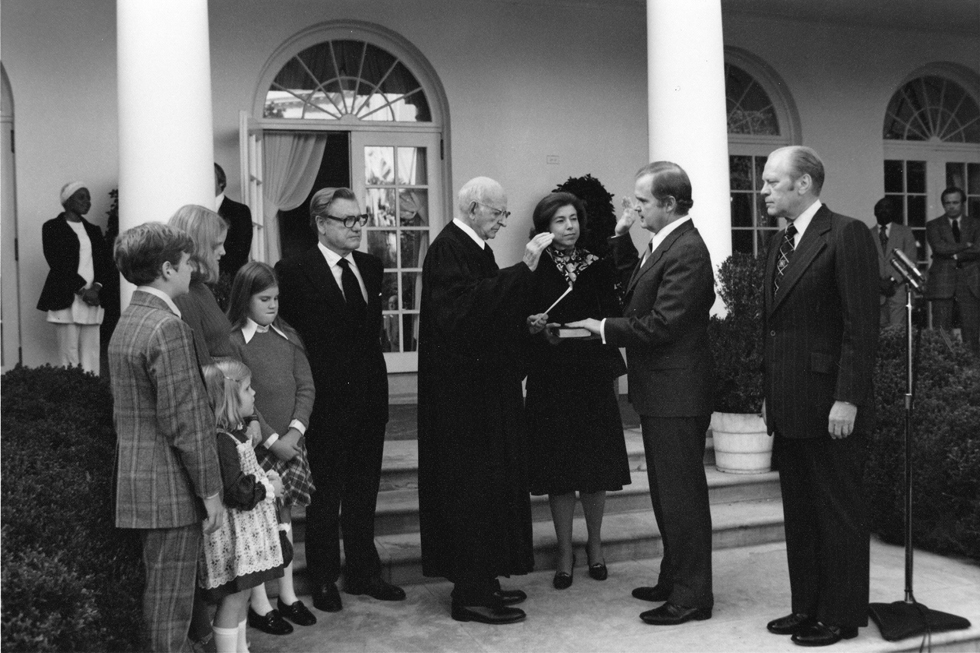Roderick Maltman Hills, March 9, 1931 to October 29, 2014

It was September of 1948 when Roderick Hills boarded a train in Los Angeles bound for Palo Alto. He liked to tell us that he wasn’t entirely sure whether he was heading north or south. I rather doubt that. He also said that when he got off that train and made his way up Palm Drive, he thought it was one of the most beautiful views he had ever seen. Of that, I have no doubt. Thirty-one years later, I felt the same way when I first made my way up Palm Drive with Dad at the wheel. Stanford was an important part of my father’s grand life journey. Dad loved his years at Stanford. He met many of his closest friends during his Stanford years, playing football, in his fraternity, and at the law school. And he met my mom, Carla Anderson (BA ’55).
Dad went to Washington, D.C., for the first time in 1955 to clerk for Justice Stanley Reed. He returned to California to practice law and, after she graduated from Yale Law School, to marry Carla Anderson and in due course start a family. In 1962 he left the firm with which he was practicing—a firm that was prepared to offer him partnership after less than five years—to start a new firm: Munger, Tolles, Hills & Rickershauser, now Munger, Tolles & Olson. This firm was different in many respects, including Dad’s requirement that every seven years every single lawyer take a sabbatical, leaving the firm to try something different and trusting their partners and associates to take care of their clients. In 1969, when his time came up for sabbatical, he and my mother with three kids in tow went to Harvard where my dad taught labor law for a semester.
In 1974, my parents again left California, now with four kids, bound for Washington, D.C. What a team they made! President Ford first appointed him White House counsel and then chairman of the Securities and Exchange Commission. As White House counsel, he worked to end government price-fixing in the airline and trucking industries. At the SEC he pushed to eliminate fixed brokerage commissions, another form of government price fixing. He was also the president’s point person for congressional investigations into CIA abuses. In his persistent way, he pursued consensus, finding in President Ford’s words “the bipartisan limits.”
After he left government, Dad threw himself into a series of challenges, which he faced with a mixture of sometimes stubborn convictions and always endless hope and energy. He headed up Peabody Coal during a nationwide coal strike, irritating other coal companies by his labor lawyer’s willingness to settle with striking miners. He became a corporate reformer, serving as the chair of the audit committee for more than a dozen corporations. In 2003, he founded his Hills Program on Governance to address the corrosive effect of poor governance, particularly corruption, on societies.
My father was not only a great and original thinker but also an energetic doer. He brought passion and conviction to everything he did. His death leaves a giant hole for his friends and family and giant shoes to fill for future reformers. SL
